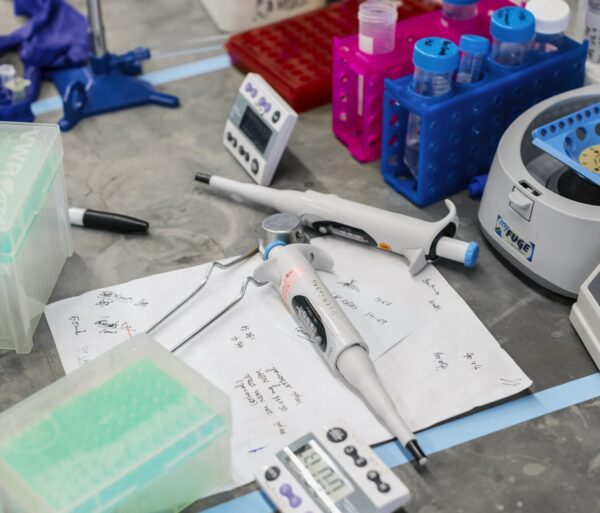
Schizophrenia is a debilitating developmental illness characterized by multiple symptoms including hallucinations, delusions and social withdrawal. Although drugs are available to treat some of the symptoms of schizophrenia, their profound side effects make non-compliance a major issue and often result in relapse and hospitalization. Schizophrenia is believed to have a neurodevelopmental origin in that patients demonstrate early cognitive impairments, behavioral dysfunction in childhood and adolescence, abnormalities in central nervous system (CNS) development, and no demonstrative neurodegeneration. One of the contributing factors to abnormal neurodevelopment in schizophrenia is thought to be a genetic insult. Therefore, understanding the genetic and developmental basis of schizophrenia is critical for discovering treatments.
Multiple schizophrenia susceptibility genes have been identified including DISC1 (Disrupted in Schizophrenia 1). DISC1 was initially identified in a large Scottish family with members who suffered from schizophrenia, bipolar disorder and recurrent major depression. DISC1’s association with schizophrenia has been confirmed in other population and family studies. Genetic studies have also indicated a DISC1 association with bipolar affective disorder, autism and Asperger syndrome. There are multiple forms of DISC1 expressed in the developing brain. Dr. Jill A. Morris used her 2009 BRF Seed Grant to examine the function of these multiple DISC1 variants during development.
Dr. Morris’ lab worked to determine the developmental defects in the developing mouse brain due to the loss of different DISC1 isoforms. Studies in the developing mouse have demonstrated prominent expression of mouse DISC1 in the hippocampus as well as expression in the developing cerebral cortex, hypothalamus, cerebellum and olfactory bulbs. These are brain regions that have been implicated in schizophrenia pathogenesis. It may be that disrupting the function of a specific DISC1 variant determines if an individual has increased susceptibility to schizophrenia, bipolar affective disorder or autism. In order to develop new therapeutics, it is critical that we understand the genetic basis of the disease. This very novel research will greatly aid in the understanding of DISC1’s role in major psychiatric disorders, and perhaps in identifying a new treatment target.
Schizophrenia is a devastating neurodevelopmental illness, which affects 1% of the world’s population and is associated with high rates of morbidity and mortality.
There is no way to prevent schizophrenia. Treatment of schizophrenia is a lifelong process, aimed at reducing symptoms and preventing relapses. It is believed early treatment may help improve the long-term outlook.



